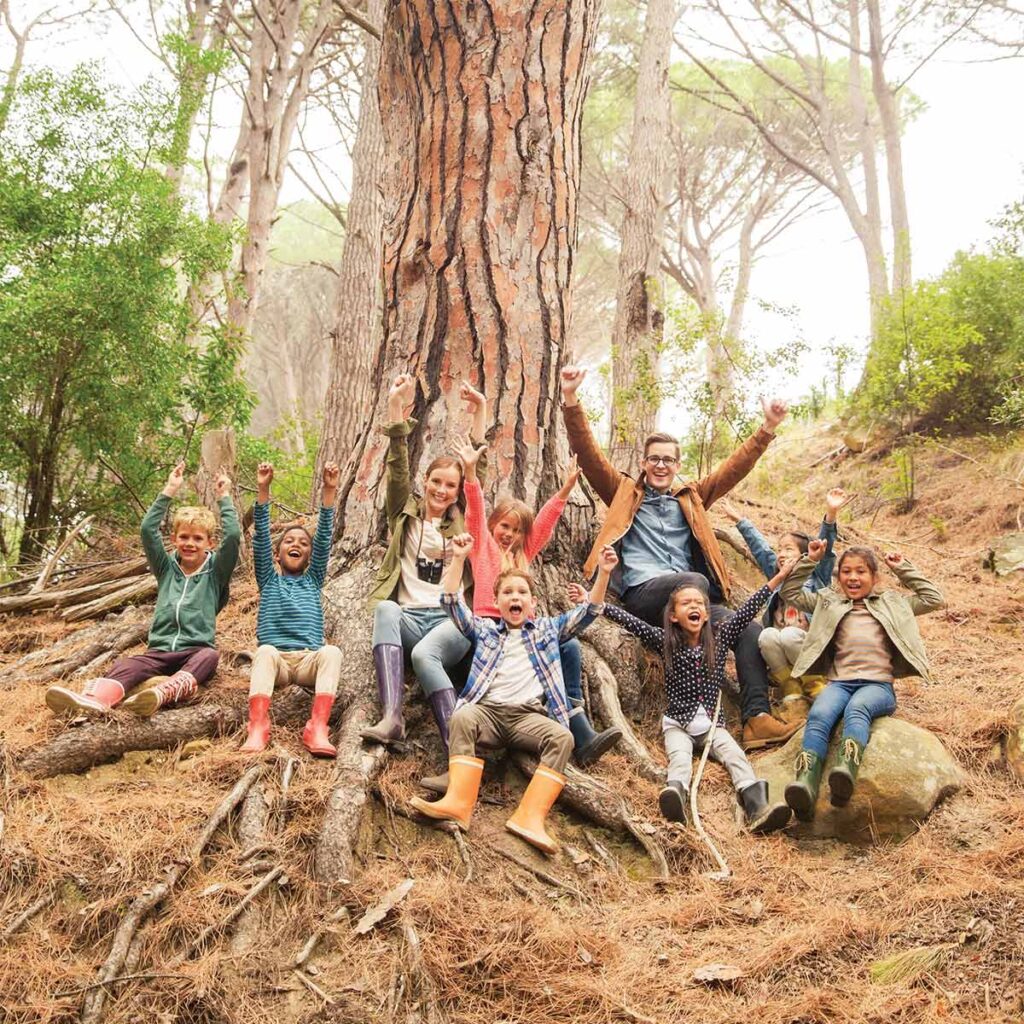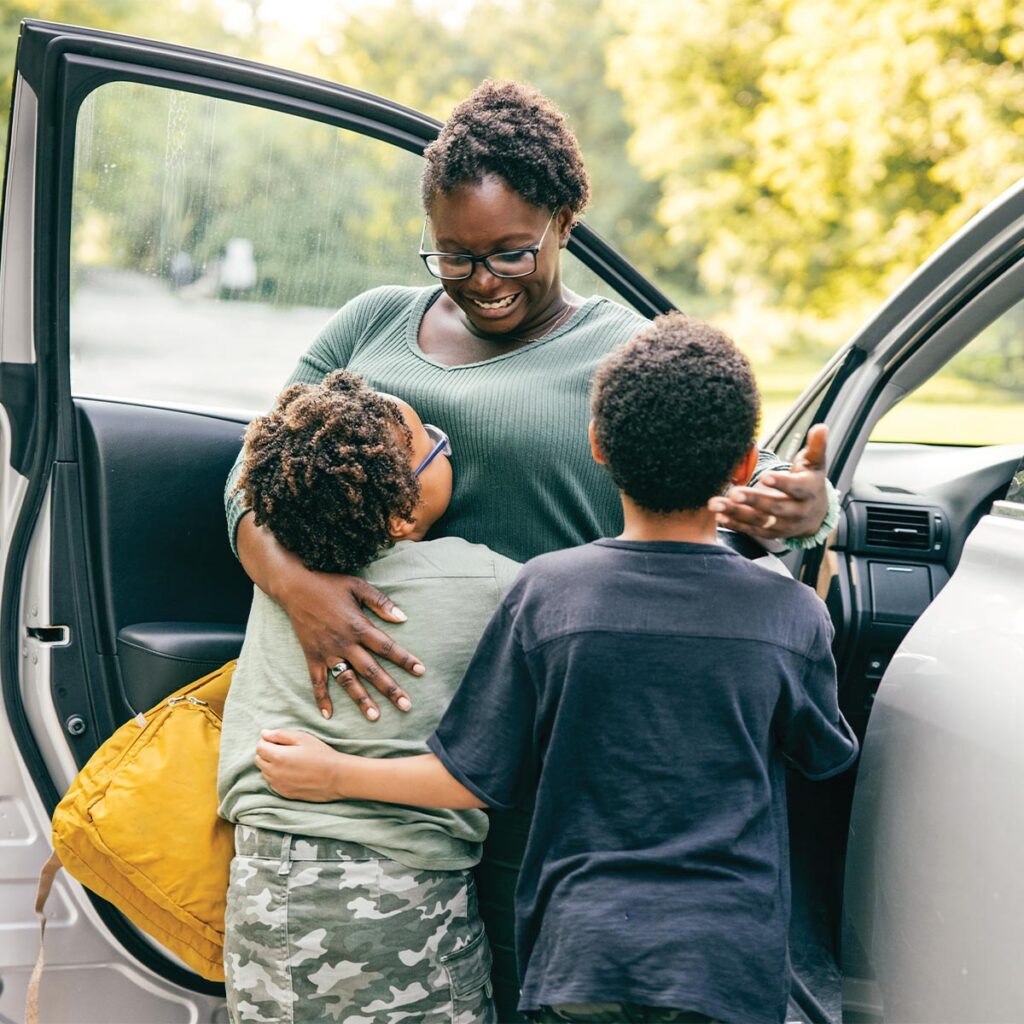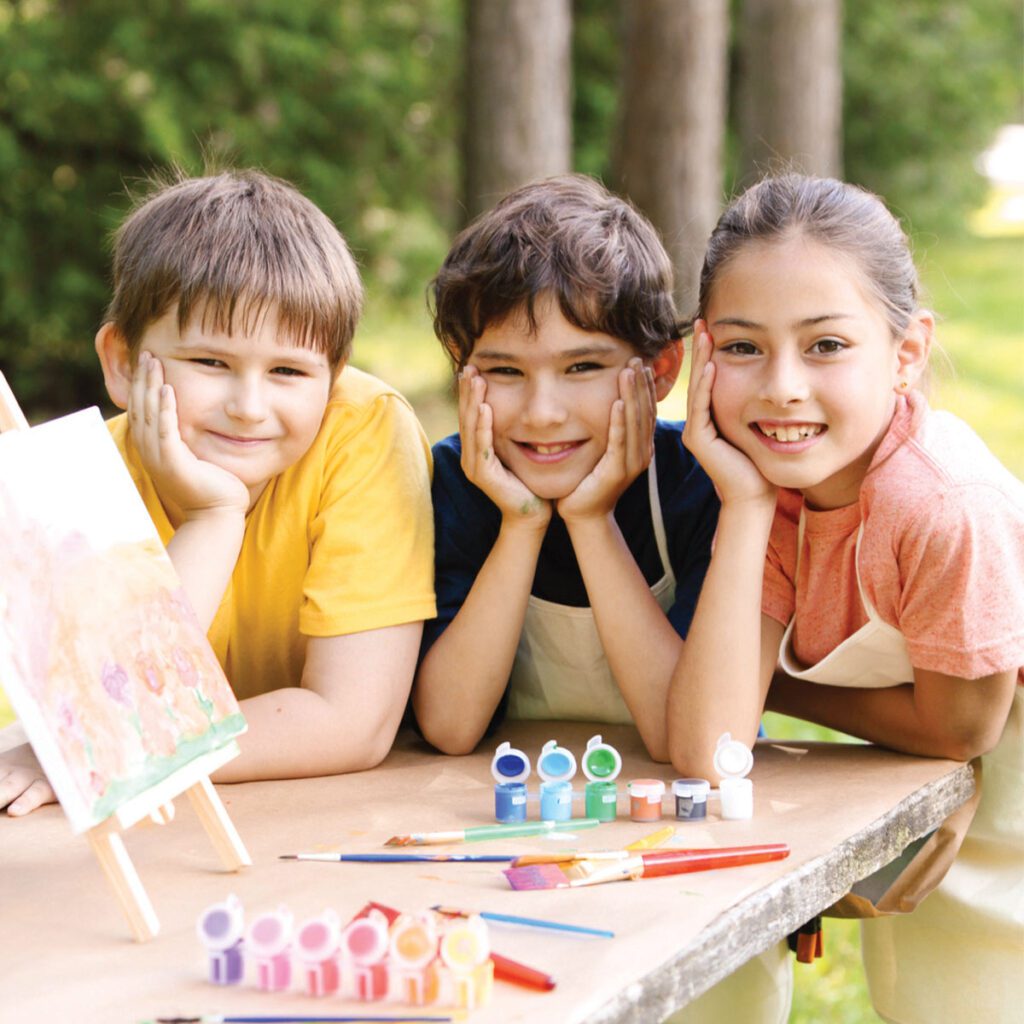A Parent's Guide to Helping Kids Make the Most of Their Summer Camp Experience
Summer camp experiences offer children valuable opportunities to learn, play, and explore the world around them. Here, we highlight the benefits of social-emotional learning at camp, helpful advice for packing your child’s camp essentials, strategies for helping homesickness, and tips for choosing the best camp experience for your child.
Social-emotional Learning at Camp
School doesn’t teach everything! Free of academic pressure, summer camp experiences create rich opportunities for children to practice essential social-emotional skills.
Surrounded by a new set of peers, children will have regular opportunities to work on practical communication skills and build new friendships.
Decision-making opportunities at camp allow children to practice self-control and responsibility.
Camp games and activities promote teamwork, confidence, and healthy goal-setting behavior.
Limited contact with parents encourages children’s independence and supports the development of healthy emotional regulation skills.
Many camps offer reflection activities for campers to practice self-awareness and mindfulness.


Knowing How to Pack
When it comes to the traditional overnight summer camp, your child may be away from home, but the way you pack their clothing and camp supplies will help them make the most of every day! Read on for helpful advice about the best way to pack your child’s camp essentials.
Know Your Camp
Most camps provide a detailed packing list for their campers. Make sure to read the packing list ahead of time, paying careful attention to any items listed as essential or prohibited.
Here are some camp supplies you won’t want to forget:
- Sunscreen
- Water bottle
- Protective sun gear
- Raincoat
- On-the-go hand sanitizer
- Any necessary medicines



Storage and Organization
Good organization and storage are essential for any overnight camp. Here are some options to consider:
- Packing Cubes – Not only do packing cubes eliminate clutter, but they also ensure clothing items remain folded and clean inside each cube until ready for use.
- Laundry Bags – Dirty clothes have a designated spot when your camper brings along a laundry bag. Opt for a laundry bag with waterproof lining for wet clothes and a mesh bag for dry clothes.
- Hanging Storage – Over-the-door shoe racks and hanging closet organizers keep camp supplies tidy and easy to grab on the go. Hanging organizers made of soft materials fold easily, making them a great option for campers who need to save room in their suitcases.
- Underbed Storage – Consider underbed storage for campers with limited closet and room space. Plastic tubs with lids are best for storing everything from shoes to electronics chargers and extra snacks.
- Shower Caddy – A shower caddy keeps all your camper’s toiletry and shower supplies in one convenient, portable location.
- Name Labels – To ensure everything you pack returns home after camp, add name labels to your child’s belongings. Iron-on labels are ideal for soft items like jackets or blankets, while printable or sticker labels are best for items like suitcases, water bottles, and toiletry items.
Looking for Luggage
With all the clothing and supplies your child needs for camp, it’s important to find the best luggage option. For camps of longer durations, a sturdy hard shell suitcase will keep contents safe during transportation, and any dirt or grime on the outside of the case can be easily wiped away. A large, plastic storage bin is another great option for campers who need extra space for camp essentials, while a soft duffel bag or large backpack is ideal for shorter camps.
Help for Homesickness
Homesickness is a normal experience for children to have when separated from loved ones, but coping strategies and at-home conversations make it nothing to fear.
- Encourage independence in your child year-round to prepare your child for a camp environment.
- Discuss and act out various camp scenarios with your child.
- Arrange for your child to attend camp with a close friend or relative.
- Send care packages or letters with encouragement.
- Allow your child to pack a comforting personal item, such as a stuffed animal.
- Speak with the camp director to assess your child’s adjustment to camp.
- If possible, take a tour of the camp with your child before they go.
- Reassure your child that feelings of homesickness are normal and will pass.



Choosing the Right Camp
According to the American Camp Association, there are over 16,000 camps across the country, but choosing the perfect fit for your camper doesn’t need to be a hassle. Here are five tips for choosing the best summer camp experience for your child.
- Budget – Decide how much you’re able to spend on a camp experience to help narrow down your choices. Most day camps are more cost-effective than overnight camps, though some organizations may offer scholarships or early-registration discounts.
- Distance – When it comes to transportation to and from camp, it’s important to consider how far you are willing to travel. Decide on a distance from home best for your family, and narrow your search to camps within that radius.
- Duration – Camps can range in duration – from single-day to week-long, or even several-month terms. Look for camps that fit best with your summer schedule, and include your kids in this conversation to help decide whether they’re ready for an intensive sleepaway camp opportunity or if it may be best to start with a short-term day camp.
- Camp Size – Consider the size of enrollment that your child may be most comfortable with, the ratio of campers to counselors, and the size of the camp facilities.
- Specialties – There are many specialty camps that focus on various interests, so consider your child’s goals and the activities they tend to enjoy. Think about whether they would benefit from a traditional camp or whether they would be interested in a camp that focuses on STEM, art, music, sports, cooking, or even urban exploration. If your child has special needs or dietary restrictions, be sure to investigate how each camp can accommodate these needs.




